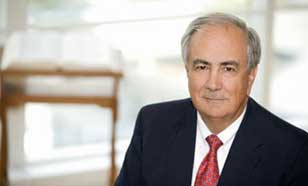The current surge in stockholder activism raises the interesting question whether proxy contests should be conducted fairly. Should the protagonists only tell the truth in soliciting votes or may they act like some politicians and say almost anything to win, true or not? The Delaware Court of Chancery recently addressed these issues in Kerbawy v. McDonnell, Del. Ch. C.A. 10769-VCP (August 18, 2015).
While the facts in Kerbawy were complicated, a brief summary helps to understand the importance of that decision. Kyle Kerbawy solicited stockholder consents to have his chosen directors replace the incumbent board of ACell Inc. Kerbawy had help seeking those consents. One ACell incumbent director provided Kerbawy with insider information. Another former director, Rodney Bosley, not only aided Kerbawy, but in doing so arguably violated Bosley’s separation agreement with ACell that prohibited Bosley from becoming a “participant” in a proxy contest. Moreover, the consent solicitation materials used by Kerbawy were at least questionable in making full disclosures to the other stockholders.



